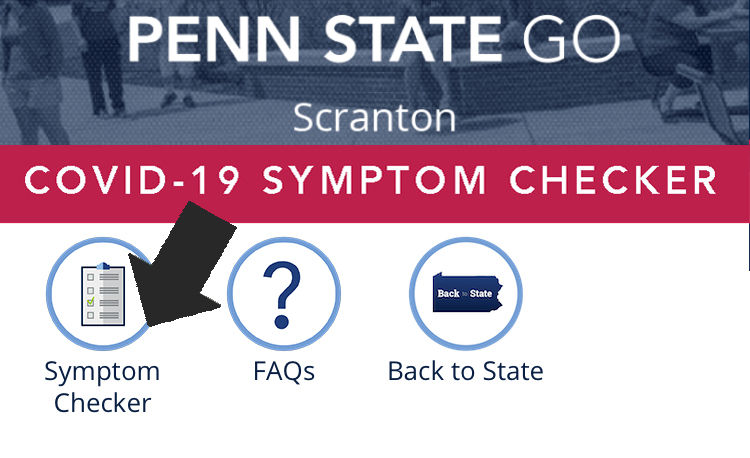Your safety and that of other students, faculty and staff can only be achieved if we all follow the required safety measures.
“The most important thing you can do to stop the spread of the SARS-CoV2 virus and other viruses is to stay home when you are experiencing symptoms,” said Dr. Bruce Kraut, senior director of University Health Services. “With all the activities associated with the start of the academic year, including tens of thousands of students and visitors returning to our campuses for classes and events, we do expect to see a rise in the number of COVID-19 cases in our communities. While we are prepared for this, it is vital for everyone on our campuses to monitor their symptoms and follow preventative measures if they feel sick or think they have been exposed.”
If you feel sick or test positive
Individuals who have been exposed to COVID-19 should follow CDC guidance for masking, testing and isolation, as needed.
- Those who test positive should stay home and away from others for a minimum of five days and may leave isolation on day six if they have been asymptomatic or if their symptoms have improved and they don’t have a fever for at least 24 hours. They should continue to wear a high-quality mask when indoors around others through day 10.
- Individuals who continue to experience symptoms after day 5 should remain in isolation until they are fever free for at least 24 hours and their symptoms are improving.
- Those who are still symptomatic after 10 days should seek medical attention.
- Students who are unsure if they should see a clinician can call University Health Services’ 24/7 Advice Nurse line at 814-865-4847 option 3.
Students who test positive should report their results via email to [email protected] and Contact Tracing will provide them with their isolation dates via email.
Students living off campus should self-isolate at home and wear a well-fitting mask when around their roommates.
Faculty and Staff
- Faculty and staff who test positive should stay home and inform their supervisor as they would with other illnesses.
- Individuals whose symptoms and job responsibilities allow may continue to work remotely or they can use accrued sick time as needed.
- After contacting their manager, staff should designate their time in Workday as “Common > Sick” during their absence. If their sick hours have been exhausted, they can use “Common > Vacation” (or other earned time-off) or “Unpaid No Pay” for absences.
Instructor notification
The University is no longer communicating students' isolation status to instructors. Students are expected to communicate directly with their instructors if they must miss class and/or lab related activities due to a confirmed case of COVID-19 and they are strongly encouraged to share their isolation dates provided by contact tracing with their instructors.
Vaccines
Penn State strongly encourages all members of the community to stay up to date with their COVID-19 vaccinations, including booster doses. Students at Commonwealth Campuses and faculty and staff should visit Vaccines.gov to find a vaccine provider.
Penn State continues to ask that students share their most recent COVID-19 vaccine information with UHS. Students at University Park, Commonwealth Campuses, and Dickinson Law can upload their vaccination records through myUHS. The University is no longer collecting data on vaccination status of faculty and staff except where required by law.
Testing
- At Commonwealth Campuses, students should consult with their campus health services or Student Affairs regarding the availability of masks and tests.
- Individuals should contact their health insurance provider to determine coverage for COVID-19 testing.
Masking
Masking is no longer required in most areas on campus, with some exceptions. In addition to these areas, which will be marked with signage, and masking when sick or after testing positive for COVID-19, the University encourages anyone who wishes to wear a mask on campus to feel free to do so.
Hygiene
All individuals are also encouraged to practice appropriate hygiene, including:
- Coughing sneezing into your elbow, not your hands
- Refraining from touching your face
- Washing hands often, for a minimum of 20 seconds, with soap and water – or using hand sanitizer after coming into contact with common surfaces and after using the bathroom.
Health insurance
Many of the mandates requiring health insurance providers to fully cover COVID-19 treatment and prevention expenses ended when the national Public Health Emergency was lifted on May 11.
Read how this change impacted the Penn State Highmark Blue Shield health plans. Individuals with other health insurance plans should contact their provider to learn about their specific coverage.
Online resources
The University community is urged to refer to the CDC website for the latest information on the COVID-19 trends and prevention. Additional information on COVID-19 is available on the UHS website.
The University will continue to share any changes or developments with the community on Penn State News and in Penn State Today.


